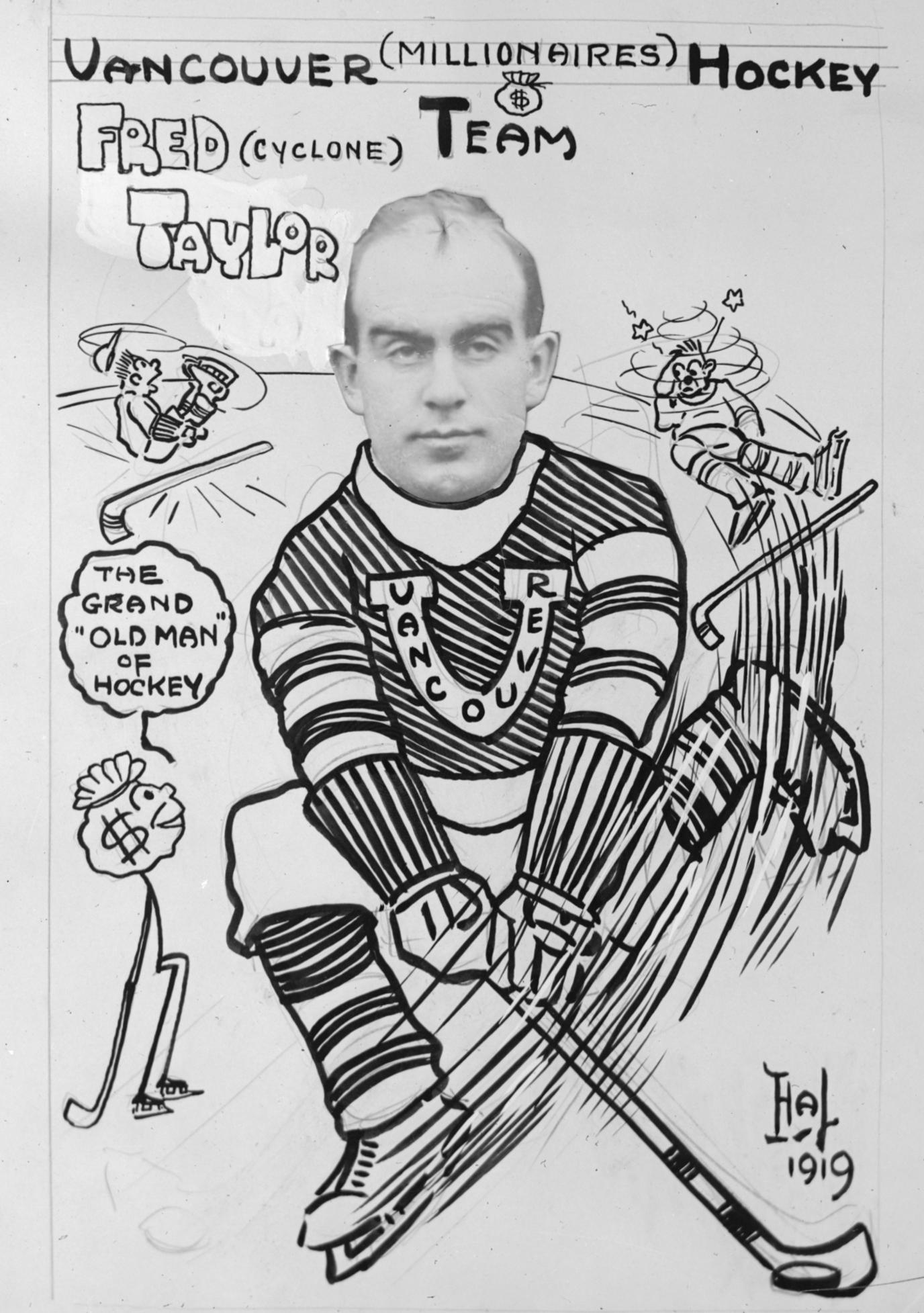Did Cyclone Taylor Top Bill Mosienko 50 Years Earlier?
Bill Mosienko of course is the author of the fastest recorded three goals in NHL history. In 1952, he notched a hat-trick in an amazing 21 seconds that I wrote about a few years ago . I recently came across a tale that may show that the legendary Fred 'Cyclone' Taylor may have scored three goals even quicker, a half century before Mosienko.
In 1953, Hall of Fame Builder and 'The Father of Hockey' James T. Sutherland described the events in 'The Hockey Book'. My comments and thoughts are included in brackets.
Back in 1904, the Kingston Frontenacs and the Listowel Juniors qualified to play for the O.H.A. junior championship. The title was to be decided in a sudden-death game at the old Mutual Street Rink in Toronto.
Some 700 fans came from Listowel by special train, and the rink was packed to the rafters. The referee was Pink Lillie. (Not sure if that was his nickname, if so it's quite a doozy) A divinity student from the University of Toronto and myself (Sutherland) were appointed official timers.
The Kingston team was leading by a comfortable 4-1 margin nearing half-time. Suddenly a Listowel lad, Taylor, skated down the ice like a veritable streak of lightning, passed all the would-be checks with ease, and with his shot cut the score down to 4-2.
Time was up in the first half right after that (this is an important part of the story, just how soon was time up?), but my partner and I were wedged in seats at least three or four rows back from rinkside. There was no timers' bench, no siren or gong for timers in those days. We waved and shouted in an effort to notify referee Lillie of the expiration of time. But he didn't have a chance to see or hear us in all the bedlam. He faced-off the puck again (this is where we have to take a guess at how much running time may have ticked away from the time Taylor scored to when Sutherland realized time was then expired. The face off would likely have been organized and conducted in 20 to 30 seconds and Sutherland was trying to get Lillie's attention for let's say half of that time. I would guess that Taylor's goal occurred with approximately 10 to 15 seconds remaining in the period), and again Taylor grabbed it, skated right through the Kingston team and scored.
By then it was harder than ever for us to get through the excited crowd. We just couldn't make it before the referee got play going again.
Now this may sound like something out of a movie script (it actually kind of does), but in a matter of mere seconds, that same Listowel kid dashed right in to chalk up his third goal in succession. (the fact that Sutherland goes out of his was to illustrate it was 'mere seconds' between the second and third goals shows they were happening extremely quickly)
Meanwhile, we had finally fought our way to the side of the rink. We jumped out on the ice, and the fat was in the fire (never heard this expression myself, it obviously refers to the fact that things were getting out of hand and sounds like something an 80-year old man would say in the early 1950's), because we had to notify the referee that the last two goals had been scored after time was up.
This caused quite a rumpus. Arguments went on until it was decided to put the matter up to John Ross Robertson, then president of the O.H.A., who was attending the game. He calmly ruled that both goals should count, as the referee had not stopped play to signify that the first half was over. So the score stood at 4-4.
At his point, Sutherland goes on to describe how Kingston decided to shadow Taylor in he second half and ended up winning by a score of 9-5, but back to Taylor's hat-trick. If we stick with the guess that official running time expired 10 to 15 seconds after Taylor's first goal and the subsequent two were indeed allowed, we would have to assign official goal times of perhaps 29:45, 30:00 and also 30:00. (remember there was two halves of 30 minutes each). So on paper, Taylor may very well have scored a hat-trick in at most 15 official seconds. By today's rules (and even 1950's rules) with stop time, not running time, it seems Taylor still may have bested Mosienko's 21 seconds.
So what we have is a very cool story of one of the all time greats that will remain where it belongs, in the folklore of the greatest game on earth.




Comments